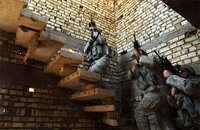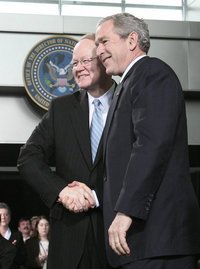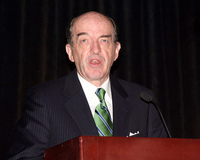 If you’re stuck in a desert in the summer in a dead-end war,
what do you want?
Water, women, wine?
Food and a ticket out?
For some, the first thing they want is:
If you’re stuck in a desert in the summer in a dead-end war,
what do you want?
Water, women, wine?
Food and a ticket out?
For some, the first thing they want is:
“There are two different wars,” said Staff Sgt. Donald Richard Harris, comparing his soldiers’ views with those of commanders in distant bases. “It’s a dead-end process, it seems like.”This is perhaps an indication of how important Internet service is these days. With it, these troops can communicate with their peers, family, and others, not to mention get news on whatever they want. Without it, they’re isolated in a howling desert.Asked to rank morale in his unit, Harris gave it a 4 on a 10-point scale. “Look at these guys. This is their downtime,” he said, as young soldiers around him silently cleaned dust from their rifles at a battle position south of the capital. A fiery wind blasted through the small base, an abandoned home surrounded by sandbags and razor wire.
“It sounds selfish, but if we just had phones and Internet service,” said Staff Sgt. Clark Merlin, his voice trailing off.
— GIs’ morale dips as Iraq war drags on, By Tina Susman, Los Angeles Times Staff Writer, August 25, 2007
Back home, without the Internet, we’re isolated in the wastelands of TV.
-jsq







